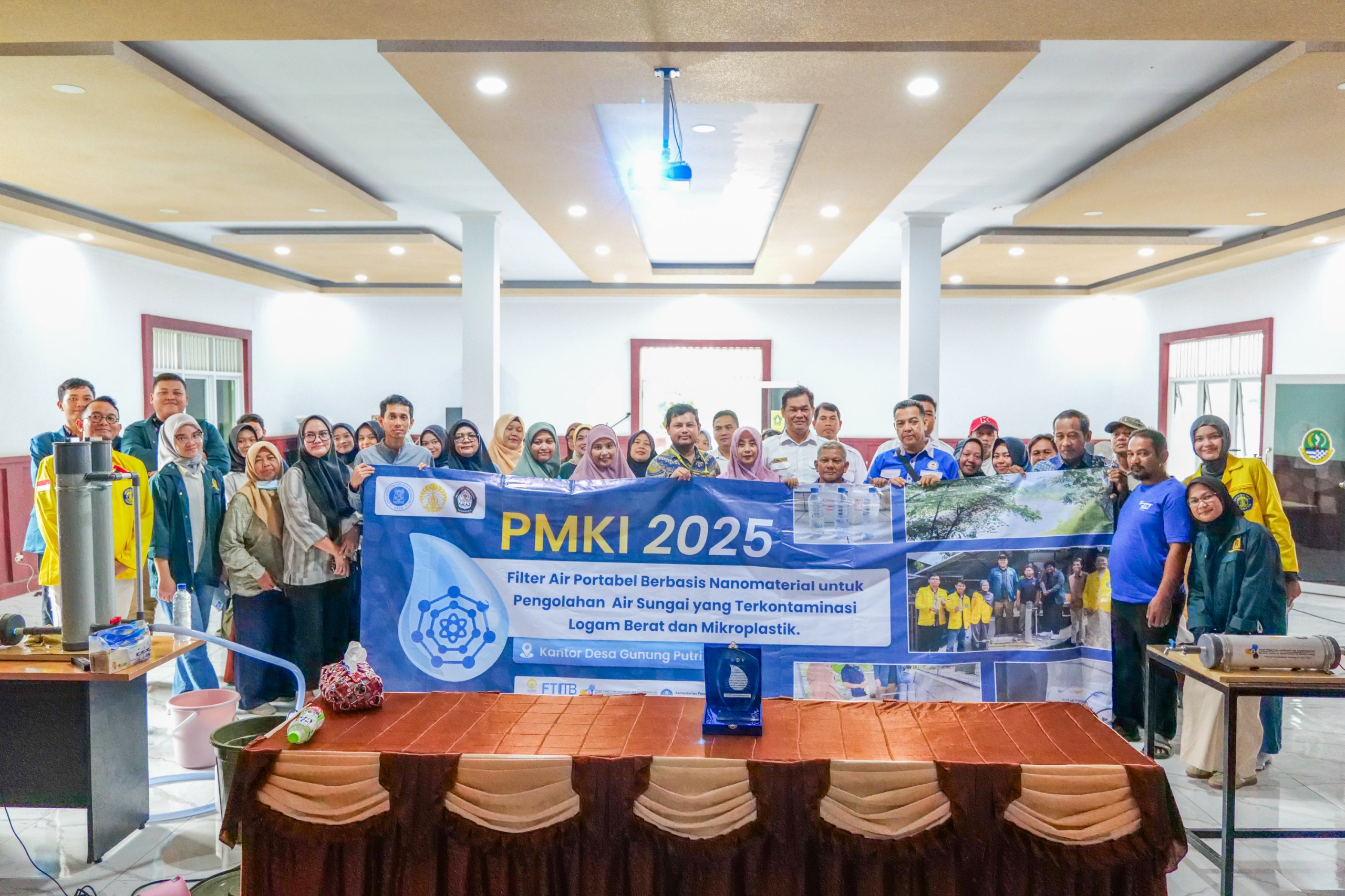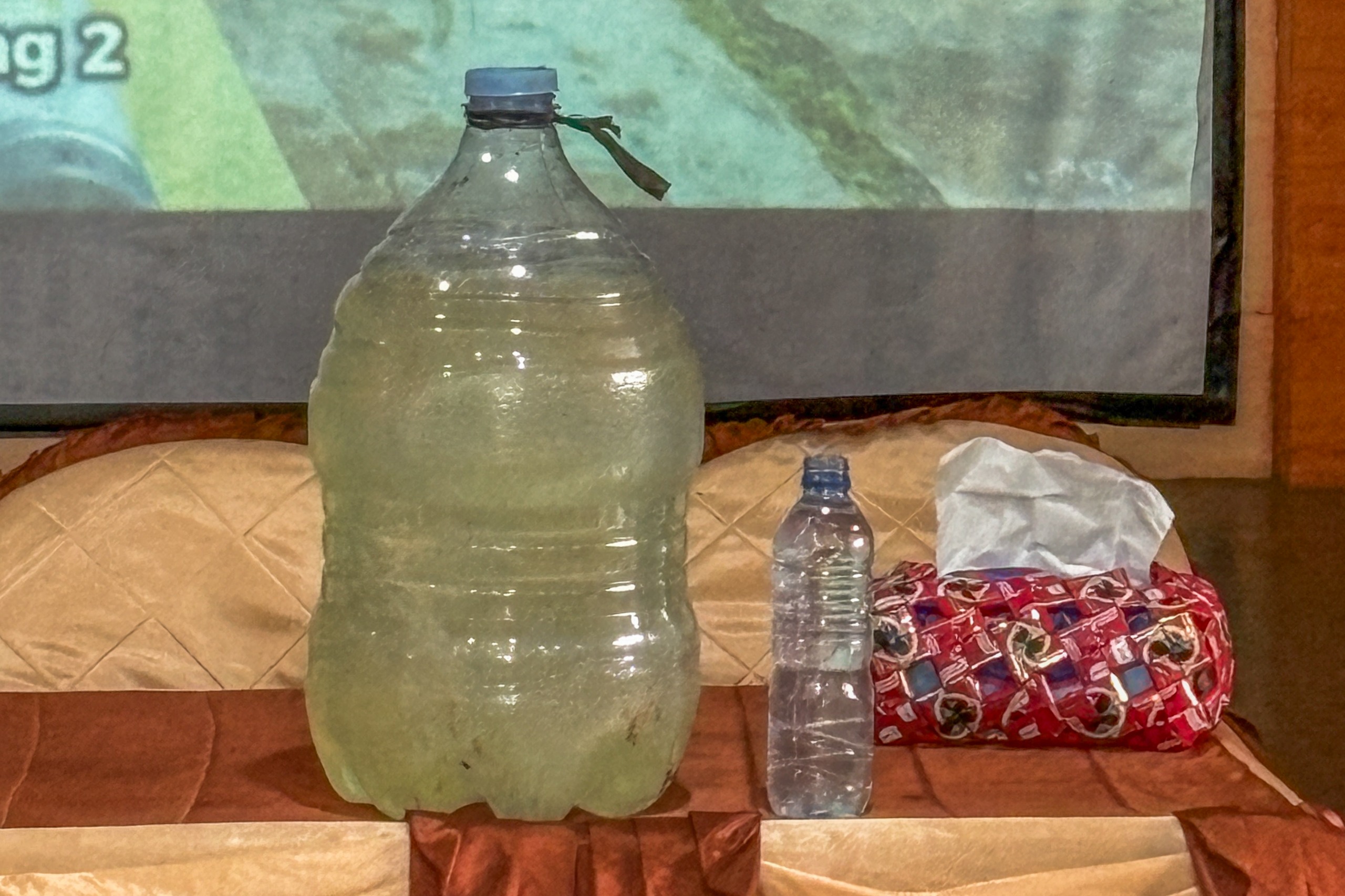An academic collaboration between Universitas Indonesia (UI), Institut Teknologi Bandung (ITB), and Universitas Diponegoro (UNDIP) has produced an innovative portable water filter technology based on nanomaterials, capable of eliminating up to 90 percent of bacteria.
This water filter innovation represents an appropriate, low-cost, efficient, and environmentally friendly technology that combines two filtration stages. The first stage uses activated sand and activated carbon to remove larger particles. The second stage applies advanced technology using ultraviolet (UV) lamps and nanoparticles that function to decontaminate hazardous pollutants such as industrial dye waste, heavy metals, and microplastics. Although this technology has proven effective in killing up to 90 percent of bacteria, it has not yet met ISO standards for drinking water.
The water filter innovation was introduced to the public through an outreach activity at the Gunung Putri Village Office, Gunung Putri District, Bogor Regency, West Java, on Wednesday, August 20, 2025. The event was part of the Pengabdian Masyarakat Kolaborasi Indonesia (PMKI) 2025, or Indonesian Collaborative Community Engagement Program.
Residents of Gunung Putri Village have long faced difficulties in accessing clean water due to contamination by heavy metals and microplastics. This issue drew the attention of researchers and students from UI, ITB, and UNDIP, who jointly developed the nanomaterial-based portable water filter innovation.
According to Dr. Damar Rastri Adhika from ITB, the nanoparticles in the filter act as photocatalysts that effectively decompose pollutants. In addition, the antimicrobial properties embedded in the filter make the water safer for daily use, such as washing.
“This is a tangible step in providing solutions for communities facing clean water challenges. I hope this collaboration continues so that more beneficial innovations can be created across various fields,” said Dr. Damar.
Meanwhile, Dr. Ir. Jaka Fajar Fatriansyah from UI emphasized that the innovation focuses not only on water purification but also on sustainability and long-term impact.
“This technology can reduce dependence on expensive and environmentally unfriendly water supply systems. We want to ensure that this innovation provides real benefits and can be widely adopted by communities,” explained Dr. Jaka.
From UNDIP, Dr. Qidir Maulana Binu Soesanto noted that the nanomaterial filter has great potential to be applied in many other remote areas.
“By using environmentally friendly nanomaterials, we are not only offering a practical solution but also reducing the negative impacts often caused by conventional water treatment technologies,” said Dr. Qidir.
Gunung Putri Village does have natural water springs, but the water quality is compromised by contaminants such as metals (including iron) and microplastics, making it unsuitable for daily use. Seasonal droughts further worsen the situation.
Now, with the portable nanomaterial filter, villagers can utilize water for various non-consumptive needs, providing a practical solution to the long-standing clean water issue. The Head of Gunung Putri Village, Daman Huri, expressed his appreciation for the innovation’s impact.
“We are truly grateful for the results. The water, which used to be murky, is now crystal clear. This is not just a solution but also opens the door for more innovations that can be applied in our villages. Going forward, we hope this technology can be scaled up to reach more communities facing similar challenges,” said Daman.
Dean of the Faculty of Engineering UI, Prof. Kemas Ridwan Kurniawan, S.T., M.Sc., Ph.D., stated that the involvement of UI, ITB, and UNDIP in this project demonstrates how synergy among universities can produce technology that is not only advanced but also directly beneficial to society.
“This nanomaterial-based water filter is a great example of how research and community engagement can go hand in hand to deliver sustainable solutions,” said Prof. Kemas.
Further research plans have been prepared to refine the technology so that it can be more widely implemented across Indonesia. With this innovation, Gunung Putri Village stands as a real example of appropriate technology application and a testament to the importance of academic collaboration in addressing community challenges.
***
Public Communication Office
Faculty of Engineering, Universitas Indonesia






